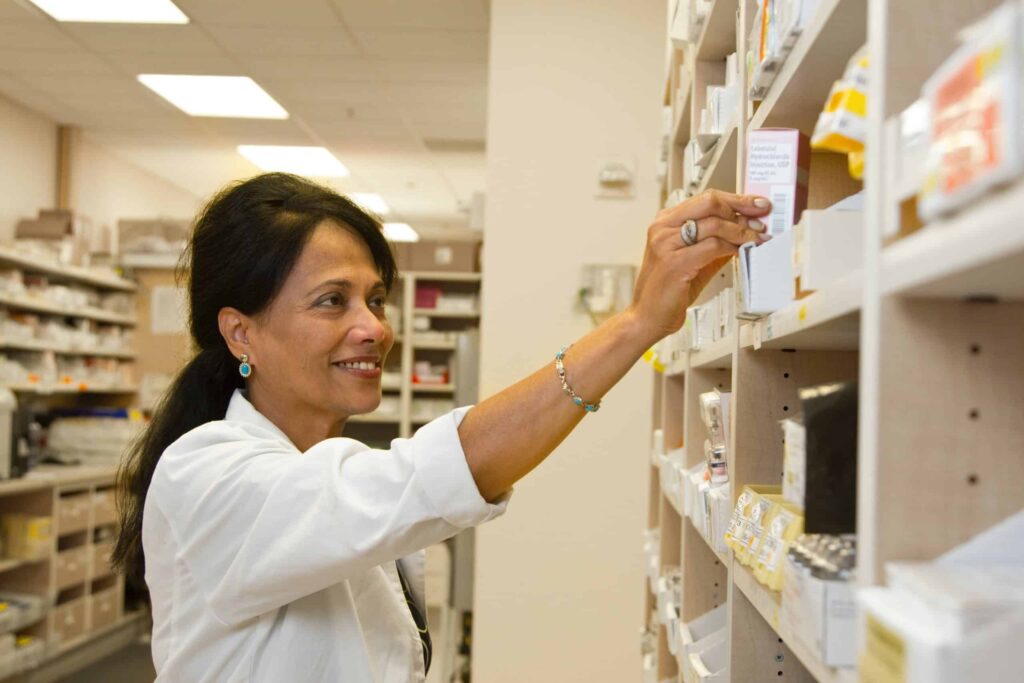Clinical pharmacology and therapeutics is the science of medicines and how they are used to diagnose, prevent and treat diseases and disorders in humans.
Clinical pharmacologists are experts in various aspects of medicinal treatment. They are able to determine the best medicine and dosage for an individual, based on a number of factors. They take into account the patient’s medical history, their lifestyle, and any other medications they currently take.
Their goal is to understand how the body and diseases react to drug treatments, which is why they are often involved in clinical trials — such as at Simbec-Orion.
What do clinical pharmacologists do?
Clinical pharmacologists frequently work in hospitals or community practices, and are invaluable when offering advice to patients undergoing treatment for multiple conditions at once.
Certain medications can react poorly to one another, to the point of making one or both drugs ineffective, so it can be helpful to have input from a clinical pharmacologist before being prescribed a new treatment. Clinical pharmacologists have an intimate knowledge of different medicines and how they interact with one another.
This is one of the reasons that clinical pharmacologists are essential when it comes to devising trials of new drugs. Before the study begins, they are able to assess what risks there could be to participants, what questions to ask during the recruiting process, and how to conduct the study to ensure the best and most accurate results possible.
Clinical pharmacologists can also predict outcomes of studies based on their knowledge of medicines and toxicology, and provide recommendations to researchers on variables like what dosage of the new drug to give to participants.
As well as advising individual patients or consulting on studies, clinical pharmacologists may also:
- Promote safe prescription practices, by consulting with hospitals or pharmacies;
- Develop long-term treatment plans for patients affected by multiple conditions;
- Provide pharmacological interpretations on the results of clinical trials as part of the peer review process;
- Consult on the economic aspects of clinical pharmacology, ensuring new treatments are cost-effective and providing statistical insights to various regulatory bodies;
- Provide toxicology expertise to assist on cases of poisoning or drug misuse.
What is the difference between basic and clinical pharmacology?
Basic pharmacology is a working knowledge of medicines and the effects they can have on the body. Professionals with basic pharmacology knowledge may understand how some medicines react with one another and the actions that certain medicines can have within the body, but do not have clinical or specialist knowledge on the subject.
If a person has a basic pharmacology understanding, they may have studied clinical pharmacology, but not to post-graduate degree level. Pharmacy technicians, paramedics, nutritionists, and sport scientists may have a basic understanding of pharmacology, but their knowledge may not be supported by a medical certification. Therefore, they could not perform all the duties of a clinical pharmacologist.
In order to practice clinical pharmacology, a person must have MD or PhD qualifications. This will certify that they have attained a high standard of knowledge in the field of medicine and the treatment of various conditions. These qualifications allow them to practice in the field as a clinical pharmacologist or in similar, related roles.
What do you need to study to work in the field of clinical pharmacology and therapeutics?
If you wish to pursue a career in clinical pharmacology and therapeutics, there are a number of qualifications you must undertake in order to fulfil the requirements.
- 5 GCSEs at grades 9 to 4 (or A* to C if you completed your GCSEs prior to 2017), including English, maths, and science;
- 3 A-levels or equivalent qualifications, two of which must be Biology and Chemistry;
- A Bachelor of Medical Sciences degree (usually second-class or higher);
- A PhD in Pharmacology, or a related subject.
Once you are awarded your medical PhD, you can begin to seek employment as a clinical pharmacologist, or a similar role. The job market can be competitive, however, so any hands-on experience gained through apprenticeships or placement years can be very helpful.
Clinical Pharmacology Services: What we do
As well as the applications of clinical pharmacology in healthcare settings, such as creating treatment plans and advising on toxicology cases in hospitals, there is another, equally important branch of clinical pharmacology and therapeutics which focuses on research. This is what we, at Simbec-Orion, have been doing for more than 45 years.
We have carried out over 2000 clinical pharmacology trials, with all drug types, at our purpose-built facility in South Wales (UK).
Pharmacology and Clinical Trials
We offer a full-service clinical pharmacology service, from a controlled unit. When it comes to clinical trials, proper controls and close attention to all possible variables are essential. This is where our team of highly-skilled clinical pharmacologists come in.
During a clinical study or trial, it is the role of a clinical pharmacologist to:
- Ensure the most suitable sample group of patients or volunteers has been recruited;
- Screen for potential issues, such environmental factors, patient lifestyle, or any other medications they may take;
- Create and uphold a clinical code of conduct, so all participants understand what is expected of them;
- Monitoring variables and the environment as the study commences;
- Ensure the study runs as smoothly as possible, according to clinical standards, from start to finish.
By having clinical pharmacologists on-hand to support a study, you can be assured that each aspect of the study has been carefully considered, to provide the best quality results and data.
If you’d like to learn more about our Clinical Pharmacology services, and how we promote the development of safe and effective drugs, feel free to visit our site to learn more.
If you need a consultant for an upcoming study, feel free to use our form to contact a scientist today, and we’ll be happy to share our expertise and answer any questions you may have.
Or, to read more articles like this one and discover what’s new in the study of medicine and clinical practice, visit the Simbec-Orion blog, written by practitioners at the forefront of clinical studies.





